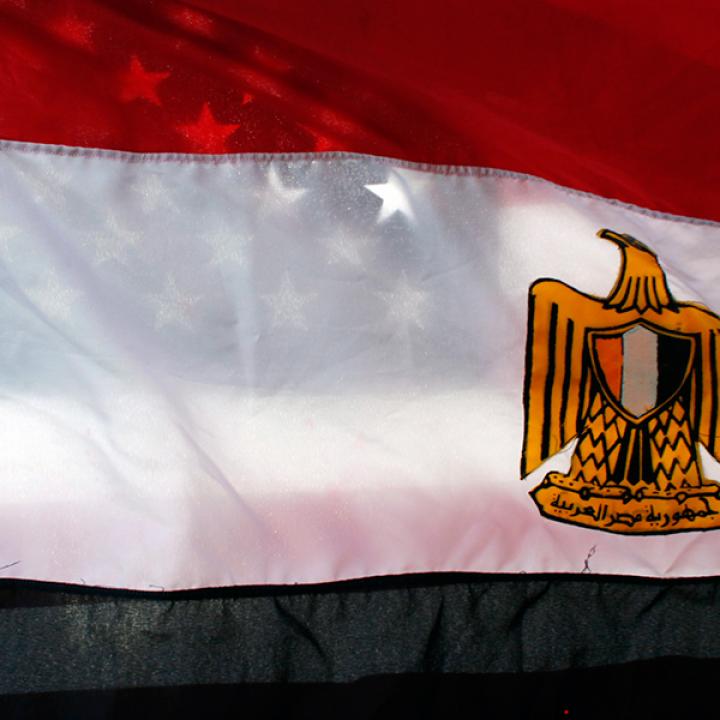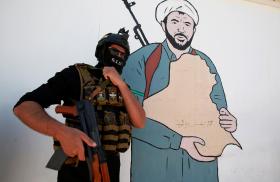

Given the administration's reluctance to act in Syria and other hotspots, President Obama is wise not to diminish US influence further by cutting ties with the Egyptian military.
"Doing nothing" is often as important as "doing something." President Obama sent a powerful message about US strategic priorities when he offered verbal condemnation but no meaningful punitive action against Egypt's rulers for their violent crackdown on protesters supporting ousted president Mohammed Morsi. With the United States facing bad options in bad circumstances, Obama's was also the right choice.
US-Egypt relations, in their modern incarnation, were born 40 years ago during the October 1973 war, when Secretary of State Henry Kissinger launched an Egyptian-Israeli diplomatic initiative, which produced a historic peace in 1979. Washington became the indispensable partner to both the region's leading democracy (Israel) and its most powerful and populous Arab state (Egypt).
The result of Kissinger's success has been four decades without an inter-state war in the Arab-Israeli arena. While the region has known horrific terrorism and conflict triggered by sub-state actors like Hezbollah, the threat that dominated strategic thinking since the 1940s -- old-fashioned conventional war -- was made a thing of the past. US aid to Egypt not only maintained this tenuous peace but cemented a broader bilateral relationship that included security cooperation, counter-terrorism coordination, and preferential treatment to US ships transiting the Suez Canal and US planes overflying Egyptian territory.
Over the years, Americans justifiably sought more from this deal. Regionally, we wanted Egypt to lead a broadening circle of Arab states towards peace with Israel; at home, we wanted to see in Egypt the development of a political system that protected religious minorities, particularly Christians, respected human rights, and provided space for legitimate, non-violent opposition.
Under Hosni Mubarak, Egypt generally rebuffed Washington on all these issues; the traditional bargain was all it wanted. Republican and Democratic presidents bit their tongues and kept to the terms of the old bargain.
When the Tahrir Square uprising forced Mubarak's ouster in 2011, President Obama's soaring rhetoric appeared to embrace the protesters' calls for democracy. But in reality, US policy was less noble; we supported the transfer of power from an 82-year old former air force general (Mubarak) to a 75-year old army general, then-Minister of Defense Muhammad Tantawi. Washington hoped that the Egyptian military could preserve the most important aspects of the US-Egyptian relationship while leading a transition to elected civilian rule.
Given the paucity of effective institutions in the country, the policy made sense, but it was a tragic mistake, largely because the generals were political naifs. Their bungling produced a series of flawed constitutional declarations, referendums, and elections that resulted in the self-aggrandizing, majoritarian rule of the anti-peace, anti-American Muslim Brotherhood.
One year later, when millions of Egyptians took to the streets to demand Morsi's resignation, the army intervened. Ostensibly, the soldiers' aim to turn the clock back to February 2011 and try again to lay a foundation for civilian rule -- this time, though, they won't be handing the keys back to the Brotherhood.
Washington advised against the intervention last month and against the crackdown this month; both times, Egypt's generals rejected US advice. In part, this is because the military viewed its confrontation with the Brotherhood as a life-and-death affair. And the army may have chosen the iron fist approach to smashing Brotherhood protests, rather than either a compromise solution or a more subtle "starve them out" approach, precisely because Washington seemed more interested in salvaging the Brotherhood as a political actor than in siding with the many Egyptians -- perhaps a majority -- eager to see the Brotherhood gone from politics altogether.
Egypt's military forced Obama, like his predecessors, to prioritize US interests, and he, too, put interests first, values second. With all the generals' faults, the chances for the emergence of effective, and eventually elected, civilian government may be greater with the military in control than with Morsi and the Brotherhood, but that should be recognized for what it is -- a pretty low bar. To evaluate the chances of progress, keep a close eye on whether the impressive group of civilian ministers put into office by the army last month stay there and begin to wield power.
More to the point, Obama's reluctance to punish the generals by suspending aid is really a bet that they are more likely than the ideologically driven Brothers to remain committed to the security partnership with America and the regional peace that goes along with it. For the president of a superpower, who frequently extols the virtues of "universal rights," this is certainly thin gruel. But Obama seems uninterested in risking his administration by intervening to change the course of regional events going in the wrong direction, such as Syria's civil war or Iraq's domestic implosion. Given this reluctance, he is wise not to diminish US influence further by cutting ties with the Egyptian military.
Robert Satloff is executive director of The Washington Institute.
Boston Globe


